“If in Washington people throwing Molotov cocktails are marching on Congress—and these people are headed for the Ukrainian Congress—if these people have barricaded the entrance to the White House and are throwing rocks at the White House security guard, would President Obama withdraw his security forces?”
New York University Professor Emeritus Stephen Cohen
The prospect of armed conflict between the United States and Russia has once again become a worrisome possibility, reminiscent of the tense times during the Cold War. But instead of Soviet missiles in Cuba provoking the impassioned rhetoric from the U.S. president, this time it is Moscow’s alleged meddling in the internal affairs of Ukraine that has brought Washington’s assurances of political support from the international community and offers of IMF loans to stabilize Ukraine’s economy.
“There is the ability for Ukraine to be a friend of the West’s and a friend of Russia’s as long as none of us are inside of Ukraine trying to meddle and intervene, certainly not militarily, with decisions that properly belong to the Ukrainian people,” declared U.S. President Obama on March 4, 2014. Incredibly, at the very moment Obama made this declaration, his secretary of state John Kerry was in fact meddling inside Ukraine in Kyiv talking to the leaders of the “new” Ukrainian government. While conceding that Russia had “legitimate interests” in what happens in Ukraine and neighboring Crimea, Obama nevertheless insisted “that does not give it the right to use force as a means of exerting influence inside of that state.”
Strange how similar concerns voiced by autocratic ally Saudi Arabia seem to have been accepted by Washington as justification to invade neighboring Bahrain, where the U.S. just happens to maintain headquarters for its 5th naval fleet. The Russians, with their Black Sea Fleet stationed in Sevastopol, have had national interests in Crimea dating back to 1783, not long after the U.S. war of independence from Britain, so it should be no surprise that Moscow would respond to any potential threat to its naval installation there. “As to the Russian military who are in the Russian Black Sea Fleet in Sevastopol,” Russian Foreign Minister Sergei Lavrov explained, “They always strictly follow the agreements on the basis of which the Russian fleet is present on this territory and the positions and requests made by the legitimate administration of Ukraine, and in this case also the legitimate administration of the Republic of Crimea.”
Apparently, Ukraine’s president, Viktor Yanukovych, even appealed to Moscow for military forces to quell unrest in much the same way as King Hamad bin Issa Al Khalifah of Bahrain called upon Riyadh for help with “security and stability.” However, the U.S. considers the former a case of “meddling in Ukraine’s internal affairs” while the latter was a legitimate use of military force by Manama to suppress an insurrection. This inconsistency in U.S. responses was easily explained by John Kerry in 2011, when he wrote, “The truth is that we must weigh our ideals, our interests and our capabilities in each case when deciding where to become involved.” In both cases, it seems that U.S. interests overcame any presumed ideals.
Calling Moscow’s military intervention in Ukraine a breach of international law, Obama has threatened to isolate Russia by imposing economic sanctions, and, overlooking U.S. interventions in Iraq, Afghanistan, Libya and a long list of other countries, he has called upon the U.S. Congress to unite in preserving the principle that “no country has the right to send in troops to another country unprovoked.” Arizona Republican Senator John McCain, who himself was in Kyiv last December along with Connecticut Democratic Senator Chris Murphy to urge on the opposition and gauge prospects for regime change, blamed the defensive Russian military posturing on Obama, calling it the “ultimate result of a feckless foreign policy where nobody believes in America's strength any more.”
Evaluating the Ukraine crisis from a slightly different perspective, Russian President Vladimir Putin stated, “There can only be one assessment of what happened in Kyiv and Ukraine as a whole – this was an anti-constitutional takeover and armed seizure of power.” Blaming the U.S. for the chaos in Ukraine, Russian Foreign Ministry spokesman Aleksandr Lukashevich exclaimed, “As always in situations, provoked by rash and irresponsible actions by Washington, we stress: This is not our choice.” Pointing out these provocative actions, Business New Europe editor Ban Aris wrote, “U.S. officials were on the streets of Kyiv handing out cookies to the demonstrators. Imagine if the Russian foreign minister was on the streets with Occupy Wall Street handing out cookies at Zuccotti Park.” More to the point, NYU Professor Stephen Cohen accused Washington of plotting a coup d’état against the elected president of Ukraine.
Let us briefly look at how the current predicament developed. While it is tempting to blame Ukraine President Viktor Yanukovych for the unrest due to his rejection of the EU Association Agreement on November 21, 2013, the problems that led to the recent protests go back much further. While Russia originally annexed Crimea in 1783, former Soviet Premiere Nikita Khrushchev precipitated the current Crimean confusion when in 1954 he presented the country to Ukraine as a gift to commemorate 300 years of Russia-Ukraine friendship dating back to the Treaty of Pereyaslav in 1654. After the Soviet Union disbanded, Crimeans voted for autonomy in January of 1991 but in December of that year, some 54% of them voted in support of independence for Ukraine. Russian President Boris Yeltsin referred the question of Crimean autonomy to the Ukrainian parliament, but the Crimeans took the initiative and declared their independence in May of 1994. Moscow, because of the presence of its Black Sea Fleet there, insisted that Sevastopol must remain a Russian city.
By 1997, Russia and Ukraine had signed a treaty resolving the issue of the Black Sea Fleet. In 1998, Viktor Yushchenko was elected prime minister only to be dismissed in 2001 following a no-confidence vote in parliament. Seen as a reformer and a fighter against corruption, Yushchenko was favored by the opposition but this made him a target for powerful Ukrainian businessmen who desired closer ties with the EU and the west. Against a background of corruption charges facing then President Leonid Kuchma, which included the sale of Krivorizhstal, the country’s largest steel producer, to a consortium that included his son-in-law, the western-backed “Orange Revolution” took place with the election of Viktor Yushchenko to the presidency in January 2005.
After entering office, Yushchenko selected his rival to be prime minister, the glamorous revolutionary leader and wealthy gas entrepreneur, Yulia Tymoshenko, who is another key player in the Ukrainian political arena. Conflict between the two began almost immediately which led to her dismissal a year later only to be reappointed to the post again in December 2007, while Yushchenko’s other rival, Viktor Yanukovych, filled the position from August 2006 until December 2007. The constant political shuffling and infighting between Yushchenko, Yanukovych and Tymoshenko arrested the political process, causing the Ukrainian economy to become hopelessly paralyzed following the 2008 global economic collapse. By 2010, Yushchenko was voted out of office, Yanukovych had become president, and in 2011, Tymoshenko was convicted of charges of abusing her power in a gas deal with Russia. By May of the same year, the IMF suspended a $15 billion loan as a result of the government’s failure to institute certain “structural reforms,” that is, austerity measures.
While Ukraine had first indicated its desire to join the EU in 1994 and has signed at least 11 bilateral policy agreements with it toward that end, leaders intimated that the EU Association Agreement would not be ratified unless President Yanukovych addressed concerns over what was termed a “stark deterioration of democracy and the rule of law,” which included Yulia Tymoshenko’s imprisonment. Realizing that the EU deal would only yield some $160 million to Ukraine over the next five years and that loan payments to the IMF required an even greater sum, Yanukovych decided to pull out of the EU agreement and sign on with Russia, which had offered him a $15 billion cash package with an initial $3 billion to be disbursed immediately. On the wisdom of Yanukovych’s move, Aris commented, “Had Yanukovych accepted the EU deal, the country would have collapsed,” which, of course, was the U.S objective as part of its ongoing campaign to weaken Russia and encircle it with NATO military forces.
Predictably, Washington was not pleased with Yanukovych’s decision; hence the U.S. pushed for regime change in Kyiv causing Moscow to respond with military force. So because of their irresponsible actions in Ukraine and bellicose threats against Russia, the Potomac potentates have created what could be termed Cold War 2.0: a crisis of historic magnitude that may just lead to the nuclear confrontation, longed for by many of Washington’s warmongers, if rashness prevails and Obama dispatches U.S. warships to the Black Sea.
TT
MNA
END

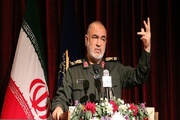
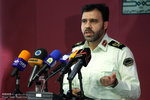
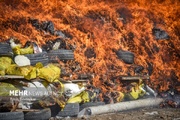
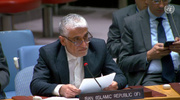
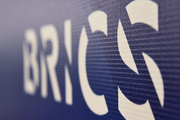
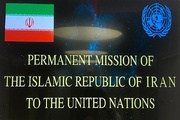
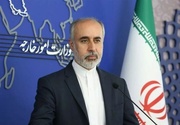

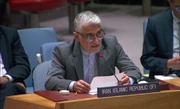
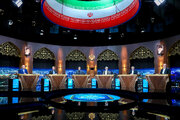
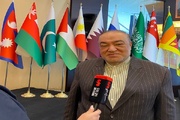
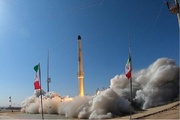

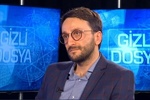
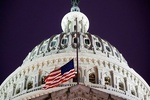
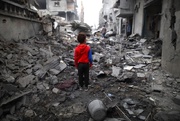
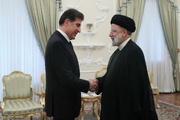
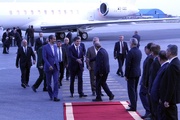
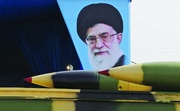

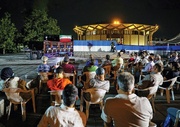
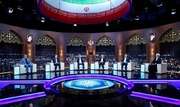
Your Comment